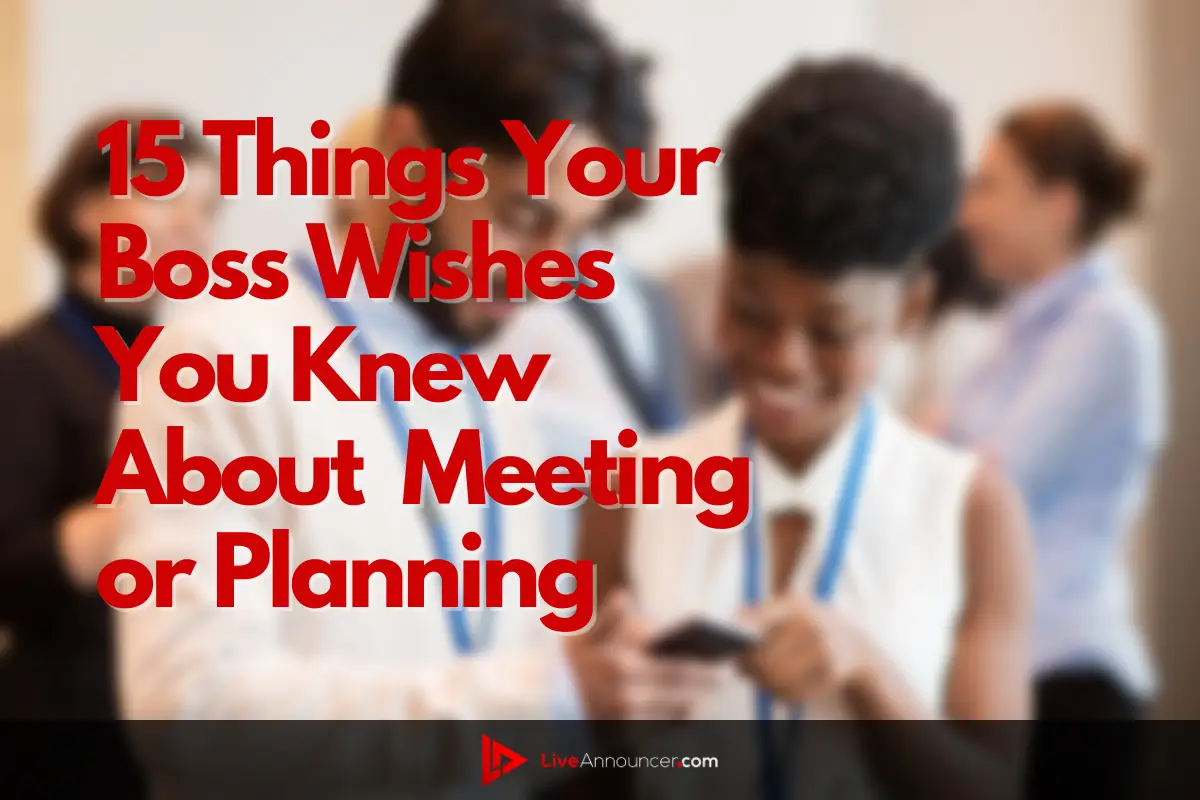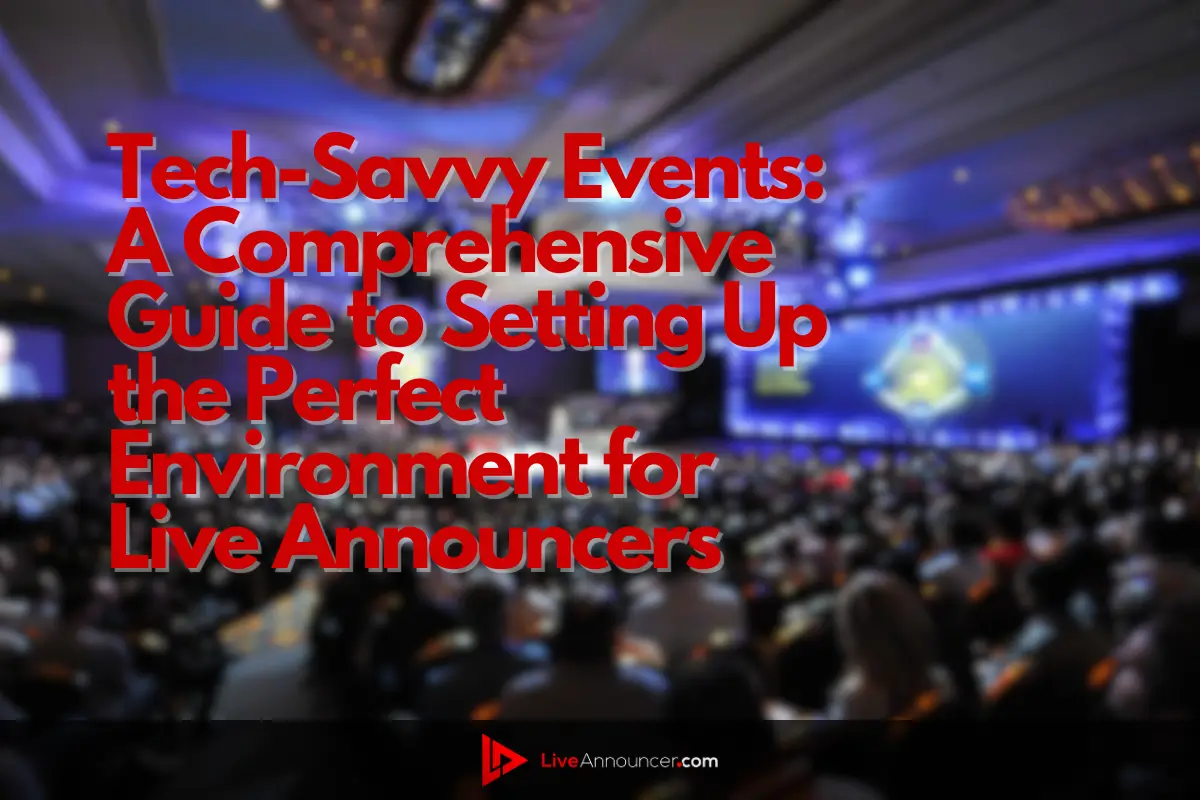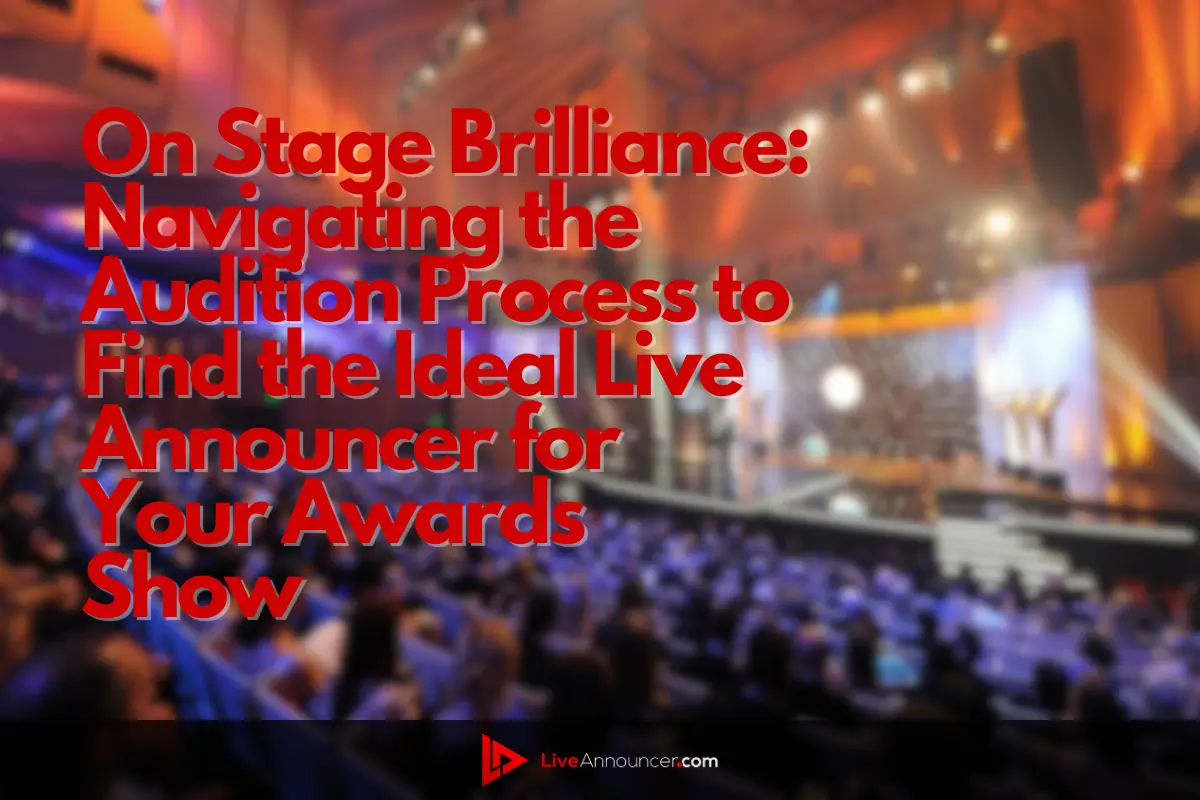
It makes sense that the quality of our work significantly impacts how happy we are, given that we spend one-third of our life at work. Our employment inexorably impacts our happiness because we spend so much time there. Therefore, planning and meeting are of utmost importance.
In a nutshell, event management and planning are indicators of an employee's job satisfaction. Now more than ever, the saying "love what you do, do what you love" is true. Businesses need more enthusiastic workers who are willing to put in their all.
This saying, "First impressions last," is accurate, and it applies especially when you are a new employee.
Additionally, employee abilities like event production, event management, stage design, etc., significantly contribute to the growth of impressionable remarks.
So, Here are 15 meeting planning-related topics your boss wishes you knew
Event management requires keeping an eye on all the details leading up to and during the event, whether it's a conference, wedding, or other scheduled meetings. Event managers oversee the staff, finances, vendor relationships, and other aspects of the event's execution.
Creating an event planning portfolio, hunting for work, or working with a customer who needs help understanding your job function and obligations might take a lot of work.
Stage design includes all the visual components during a performance, such as the set, the costumes, the lighting, and the props.
The designers work together to ensure that the stage design fulfills the performance demands and produces a united setting for the play because they aim to create a unique, cohesive universe.
A concerted team effort is required to manage all the arrangements for any event. Consider selecting a single primary event manager or chair in addition to specific chairpersons for each subcommittee, such as:
● Location Management
● Speakers
● Entertainment
● Publicity
● Sponsors
● Volunteer Administration
Additionally, it will enable delegation; however, remember to factor committee meetings into the timing of your event plan.
You could stand out from other events with the help of an intriguing and topical theme. Pick a compelling theme, and use it to guide every aspect of your event—even the name.
Highlight the unique aspects of it, especially in online media, as this may be what draws people in.
Name generation, slogan creation, and logo design are some crucial tasks.
Use your name, tagline, and logo as soon as you have them in all your marketing materials to help people unfamiliar with your company begin to recognize you and remember the event.
Event production is an event's technological and artistic execution using sound, lighting, video, design, and other elements to influence the environment, attendees' moods, and emotions.
An event producer will collaborate with customers (often meeting planners or event managers) to determine the event's concept before planning its technical and logistical elements, such as audiovisuals, vendors, staff, equipment, and finances.
Although experiential design draws elements from several fields, at its core, it is about providing fantastic customer service. Keep a few things in mind while designing a product or marketing strategy.
Despite being an extensive-phrase that covers many different fields, experiential design is simply the art and science of influencing the consumer experience.
A first impression is created every time a customer interacts with your product or service, and this impression is influenced by effective experiential design.
To distribute crucial announcements and make announcements, you need an announcer. This is an essential step in preparation for a meeting or event.
You've spent months planning, creating, testing, and getting ready. There are three people to please: customers, sponsors, and the audience. Finding the ideal announcer to carry out your vision can be difficult, whether you're planning virtual, live, or hybrid events.
Live Announcer is the most reliable platform you will ever visit. You don't have time to cater to a novice's or famous person's ego. You require a skilled live broadcaster who is easy to deal with and doesn’t require your constant supervision.
You should always remember that you are using someone else's funds to pay for the event you are arranging. Having sound financial management and budgeting skills is essential in the event sector.
It's so simple to get nickeled and dimed; you need to pay attention; extra fees and purchases could mount. Be wise and frugal.
Whether you like it or not, a significant portion of your work as an event planner will involve negotiating contracts. Locations, amusement, food, your services, and more! Anything you can think of will need to be agreed upon.
The ability to negotiate contracts in your clients' favor regularly will put you on the fast track to recommendations and repeat business. These skills will set you apart from typical event planners and make you a standout.
Event planners are multitasking masters, as stated at this piece's beginning. Managing several tasks, deadlines, and assignments at once is a requirement for an event's success. Consider all the activities that happen during a single event.
The chaotic event game requires you to stay alert, anticipate what will happen next, and follow through with your squad.
You need to be aware of the level of accountability an event planner has. A considerable amount of responsibility necessitates leadership and delegation. It's not simple to lead teams of people with different backgrounds and leadership styles, and it's not for someone who needs more self-assurance.
Many people have a natural aptitude for leadership, but those who don't feel comfortable exercising it will undoubtedly need to put in a lot of effort to develop it.
To ensure you are aware of every project and strategy, you must feel at ease following up with your clients and every third-party vendor and team you work with.
Along with being at ease speaking to a variety of people throughout the day, you must be skilled at delivering instructions and messages in a way that is understandable to everybody.
Being an event planner means you are in charge of organizing the event and ensuring that it is carried out as planned. You won't lose track of anything if you have effective communication and a kind demeanor, even all through the behaviors of your team.
All aspects of the profession require the ability to adapt to any situation, especially when that situation involves high danger and stress. You must be able to respond swiftly to challenges as an event planner and change course.
There will be deviations from your well-planned checklist; this is a given in every event. Your event, and ultimately your reputation in the business, will depend on how you handle the situation when it arises.
Quickly adjust to new developments, issues, or adjustments, and always be prepared with a "plan B."
This is a no-brainer. Innovation is essential, and the goal of the position is to engage and astound clients and event attendees.
A location may be reserved, caterers can be hired, and anyone else can confirm entertainment, but event planners elevate those aspects to a new level. Understanding how to turn ideas and spaces into something better is challenging.
A meeting planner makes expert selections in meeting setup and presentation. They organize meetings, set meeting goals, schedule them, budget their costs, examine the meeting locations, bargain with vendors, and choose the speakers.
They also must take care of the meeting's technical equipment and travel preparations. These things will make you more impressive and reputable in front of your boss.



